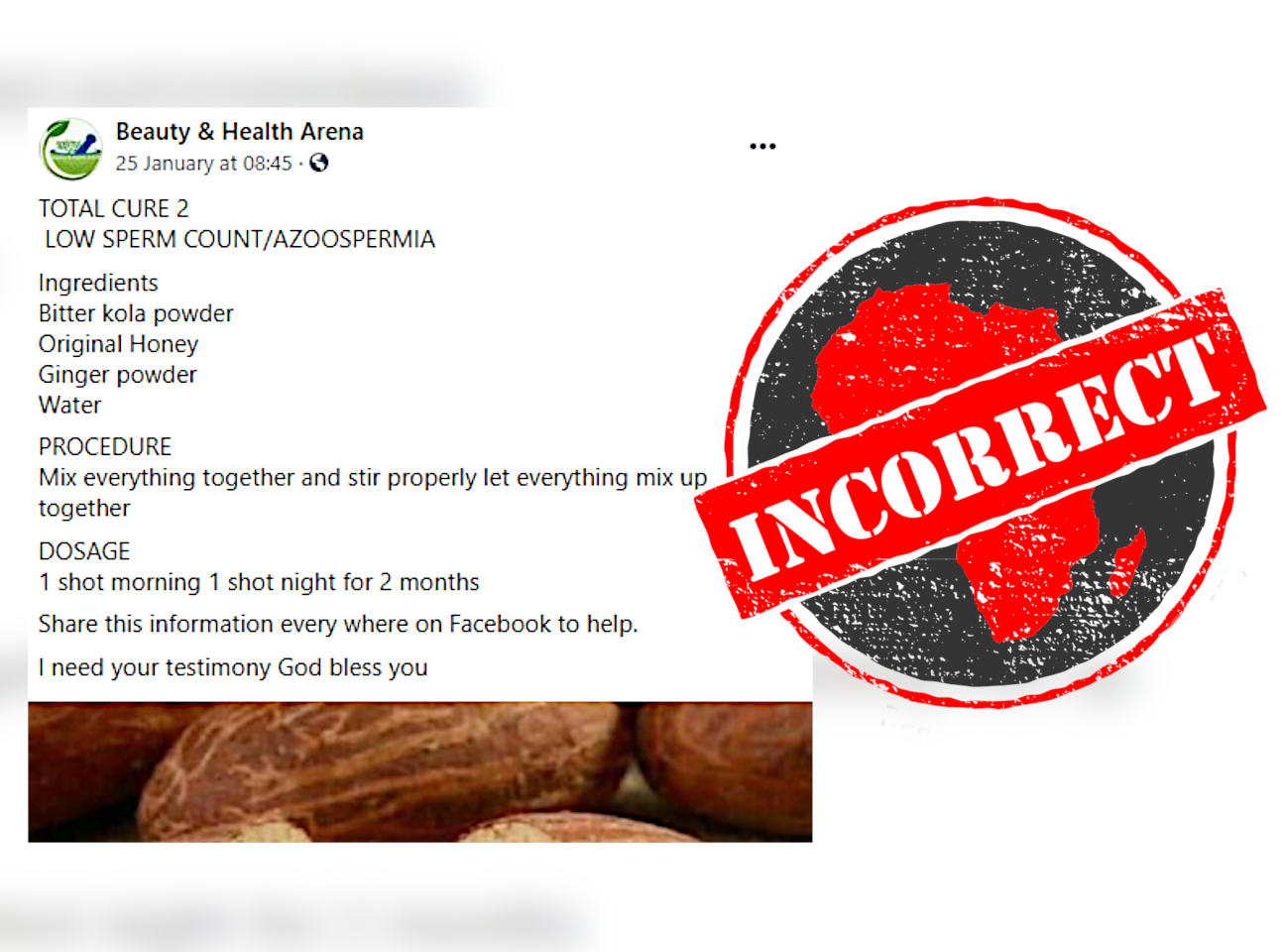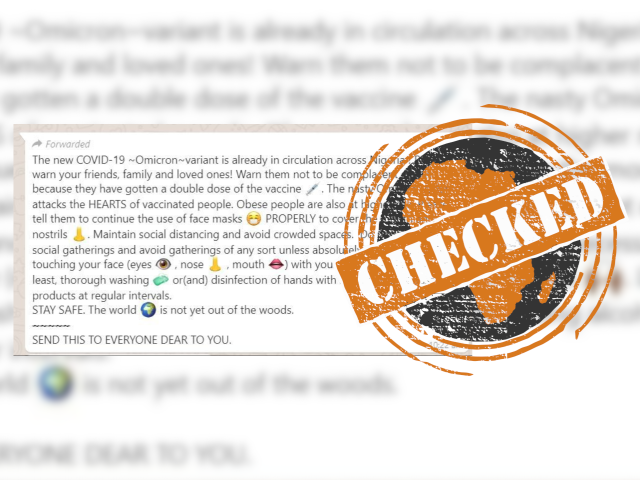A post on the Nigeria-based Facebook page “Beauty & Health Arena” claims a mixture of bitter kola powder, honey, ginger powder and water is a “total cure” for low sperm count and azoospermia.
It describes how to prepare and take the mixture, ending with: “Share this information everywhere on Facebook to help. I need your testimony. God bless you.”
Low sperm count, also called oligospermia, is when the sperm per millilitre of semen is fewer than 15 million.
Azoospermia is a condition where there is no sperm in a man’s ejaculate. Causes include hormonal problems, a blockage along the reproductive tract, ejaculation problems or issues with testicular function or structure.
But is there any scientific evidence that this simple home remedy would cure these conditions? We checked.

‘Treatable, but see a doctor’
Sulyman Alege Kuranga, professor of urology at the faculty of clinical sciences at the University of Ilorin in western Nigeria, said the claim was wrong.
“There is no scientific evidence to support this claim. If an infection is causing the low sperm count, we treat the infection and that may help,” he said.
He added that there were several causes of low sperm count and azoospermia. Treatment options are available but depend on the cause.
Kuranga said the safest option for men with these conditions was to see a specialist who could prescribe the right treatment options after assessment.
Africa Check has previously debunked a similar claim, that a spice mixture is a remedy for infertility and other health concerns. Like it, this claim is also incorrect.
Republish our content for free
For publishers: what to do if your post is rated false
A fact-checker has rated your Facebook or Instagram post as “false”, “altered”, “partly false” or “missing context”. This could have serious consequences. What do you do?
Click on our guide for the steps you should follow.
Publishers guideAfrica Check teams up with Facebook
Africa Check is a partner in Meta's third-party fact-checking programme to help stop the spread of false information on social media.
The content we rate as “false” will be downgraded on Facebook and Instagram. This means fewer people will see it.
You can also help identify false information on Facebook. This guide explains how.





Add new comment